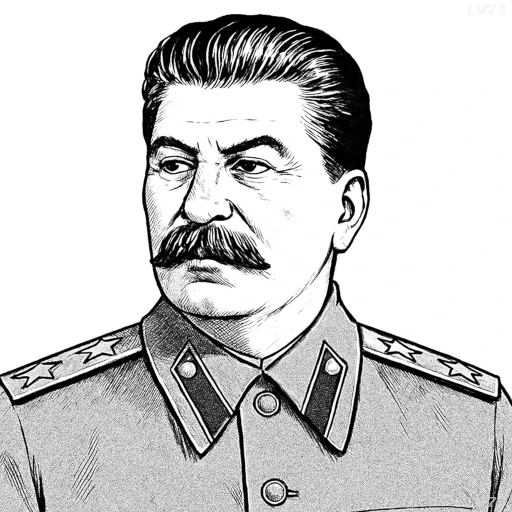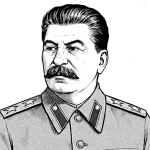“If the opposition disarms, well and good. If it refuses to disarm, we shall disarm it ourselves.”

- December 18, 1878 – March 5, 1953
- Born in Georgia
- Politician
table of contents
Quote
“If the opposition disarms, well and good. If it refuses to disarm, we shall disarm it ourselves.”
Explanation
This quote illustrates Stalin’s ruthless approach to maintaining control and his willingness to use force to suppress any opposition. The idea of “disarming” in this context is not just about the physical removal of weapons, but about neutralizing political opponents, dissent, or any threats to his regime. Stalin believed that any resistance to his authority had to be eradicated, and he was not hesitant to resort to violence and intimidation to ensure that opposition was crushed. This mentality was evident in Stalin’s repressive measures, such as the purges and show trials, where perceived enemies of the state—whether real or imagined—were eliminated. The quote reflects his uncompromising stance on power, where he viewed dissent as a direct challenge to the state’s survival.
The historical context of this statement aligns with the political climate of the Soviet Union under Stalin, where any form of opposition, from individual critics to entire political factions, was met with severe retaliation. The disarmament mentioned here can be seen as a metaphor for the complete dismantling of any groups, parties, or ideologies that could undermine Stalin’s absolute control. For Stalin, any opposition to his rule was viewed as dangerous, and therefore, it had to be extinguished at all costs. This led to numerous violent crackdowns on both real and perceived threats, resulting in widespread suffering and loss of life.
In the modern context, the quote serves as a warning against authoritarianism and the dangers of using force to silence dissent. It highlights the extreme lengths to which dictators and totalitarian regimes will go to eliminate opposition, often at the expense of human rights and political freedom. As the world continues to strive for peace and justice, it is crucial to recognize the destructive nature of such authoritarian tactics and ensure that the voices of opposition are respected in any society, rather than suppressed through violence or coercion.
Would you like to share your impressions or related stories about this quote in the comments section?
